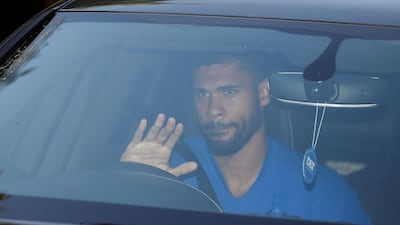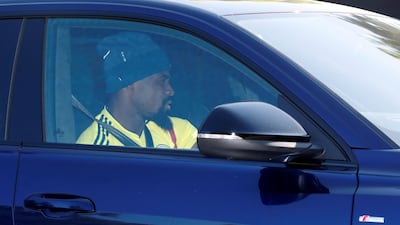Premier League clubs face a bill of at least £20 (Dh89m) million each to broadcasters as Manchester United admitted football will be counting the cost of coronavirus for years.
United said they had lost £23 million by the end of March alone because of the Covid-19 pandemic after writing off £15 million in their accounts for the first nine months of the financial year as the first three-quarters of what they will owe to television companies.
Even if the Premier League campaign is completed, clubs will face refund requests because games will not be played when scheduled and said discussions are ongoing about the size of the rebate.
United said they are better positioned to survive the economic crisis than most and are confident that they will continue to attract sponsors, meaning that games behind closed doors are beneficial even to a club who would normally bring in more than £100 million a year in matchday revenue.
But they warned football and its finances will not return to normal soon. Executive vice-chairman Ed Woodward said: “It is safe to say it will not be business as usual for some time. This crisis will not disappear overnight and the world that emerges will be different from before. These are unprecedented times and one of the most extraordinary and testing times in the 142-year history of Manchester United but we are well positioned operationally and financially to weather this global crisis.”
Managing director Richard Arnold added: “The economic ramifications from this pandemic will continue to resonate for years to come but we remain optimistic about the sponsorship business and our ability to remain a leader in this market.
“This club has endured two World Wars, a global depression, the credit crunch and a previous pandemic. Resilience is at the core of this club. This club will come out of this crisis more determined to achieve.”
United’s income has been hit in several ways, with three games postponed in March and the closure of their megastore while they have called off their usual money-spinning pre-season tour.
Their debt has gone up £127 million, or 42 percent, to over £429 million, although they attributed that to the change in the exchange rate between the British pound and the American dollar.
They had previously projected their annual income would be of around £560-£580 million but they have abandoned those projections and have not issued new ones, because of the impact of coronavirus.
But they could be one of the few clubs able to spend in the transfer market. They can still access almost a quarter of a billion pounds with cash reserves of £90 million at the end of March and have a credit facility for a further £150 million.
United are supported by strong commercial revenues, while wages have decreased 18 percent over the year because they are not playing in the Champions League, and a resumption of football would help guarantee that income.
Arnold explained: “The majority of sponsor rights comes from the global exposure of screening games. Behind closed doors, while we really want fans to be there when it is safe to do so, continues to generate exposure.”
Woodward did not put a date on the Premier League's possible comeback but said he was confident it will begin next month.
He added: “We are optimistic it will soon be possible to return to play football. We anticipate domestic games could start again in June. All indications from Uefa are that the culmination of the Europa League could be in August. The absence of live football has reminded us how much it means to us. The TV audiences attracted to the Bundesliga show the pent-up demand for live football.”

















